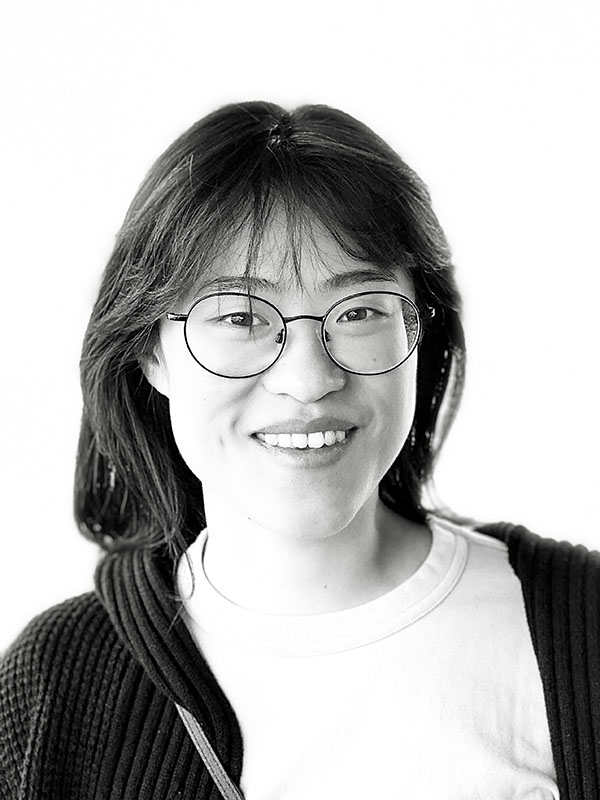Academic Degrees
- Ph.D., Civil Engineering, Purdue University, 2020
- M.S., Civil Engineering, Purdue University, 2015
- B.S., Built Environment & Building Service Engineering, Chongqing University, 2013
Certifications
- Ph.D.
Open Position(s)
Seeking for highly motivated and talented Ph.D. students with (i) strong interest and skills in one or more of our team's research areas; (ii) higher education degrees in Architectural Engineering, Mechanical Engineering, Building Science/Engineering, Civil Engineering or other related disciplines; (iii) ability to both conduct research independently and collaborate with multidisciplinary team. If you are interested, feel free send your CV, research plan or statement of purpose, and writing samples (if applicable).
Experience
Research Engineer at Pacific Northwest National Laboratory, 2021-2022
Graduate Research Assistant at Purdue University, 2015-2020
Graduate Teaching Assistant at Purdue University, 2015-2019
Areas of Research and Professional Interest
Intelligent Building Operations
Human-building Interactions
Artificial Intelligence & Machine Learning
Grid-interactive Efficient Buildings
Building Energy Performance Simulation
Courses Taught
- AREN 4120 Building Energy II
- CNST 3050 Built Environment Technical Systems
About Xiaoqi (Clare) Liu
Dr. Liu is an Assistant Professor at the Durham School of Architectural Engineering & Construction. Prior to joining University of Nebraska-Lincoln, she worked as a Research Engineer at Pacific Northwest National Laboratory (PNNL). She was involved in several industry- and federal-funded research projects related to advanced building controls, occupant eco-feedback programs, building-to-grid integrations, and building energy standards. Her research combines Artificial Intelligence (AI) with physical knowledge of building systems to create scalable, efficient and reliable solutions for intelligent operation planning that optimize building energy use and demand, while serving occupants’ needs.
Selected Publications
In journals:
- Soleimanijavid, A., Konstantzos, I., & Liu, X. (2024). Challenges and opportunities of occupant-centric building controls in real-world implementation: A critical review. Energy and Buildings, 113958.
- Zhang, H., Tzempelikos, A., Liu, X., Lee, S., Cappelletti, F., & Gasparella, A. (2023). The impact of personal preference-based thermal control on energy use and thermal comfort: field implementation. Energy and Buildings, 112848.
- Liu, X., Lee, S., Bilionis, I., Karava, P., Joe, J., & Sadeghi, A. (2021). A User-interactive system for smart thermal environment control in office buildings, Applied Energy. 298, 117005.
- Awalgaonkar, N., Bilionis, I., Liu, X., Karava, P., & Tzempelikos, A. (2019). Learning personalized thermal preferences via Bayesian active learning with unimodality constraints. arXiv preprint arXiv:1903.09094.
- Liu, X., Paritosh, P., Awalgaonkar, N. M., Bilionis, I., & Karava, P. (2018). Model predictive control under forecast uncertainty for optimal operation of buildings with integrated solar systems. Solar Energy, 171, 953-970.
In conference proceedings:
- Kuo, T., Manikkan, S., Bilionis, I., Liu, X., & Karava, P. (2023, November). Physics-informed machine learning framework to model buildings from incomplete information. In Journal of Physics: Conference Series (Vol. 2600, No. 7, p. 072013). IOP Publishing.
- Novie, A., Goel, S., Liu, X., Rosenberg, M.I., Marcotte, J., Cropp, J. (2022, August). Early designs and deep retrofits: meeting affordable multifamily organizations with useful technical services. 2022 ACEEE Summer Study on Energy Efficiency in Buildings.
- Zhang, H., Liu, X., Lee, S., Tzempelikos, T. (2021, July). Local sensing and personalized thermal comfort: model-predictive vs conventional control approaches. In Proceedings of 6th High Performance Buildings Conference.
- Zhang, H., Kim, M., Liu, X., Tzempelikos, T. (2021, January). A comparison of sensing type and control complexity techniques for personalized thermal comfort. In Proceedings of 2021 ASHRAE Winter Conference.
- Liu, X., Paritosh, P., Awalgaonkar, N. M., Bilionis, I., & Karava, P. (2018, July). Optimal solar energy utilization in building operation under weather uncertainty. In Proceedings of 5th High Performance Buildings Conference.

